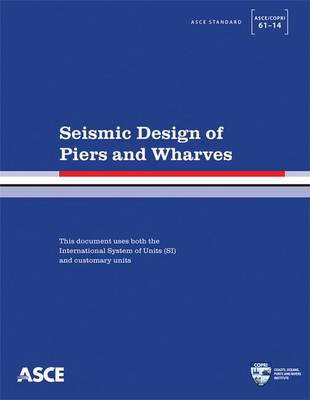Standards ASCE/COPRI 61-14
1 total work
Prepared by the Standards Committee on Seismic Design of Piers and Wharves of the Coasts, Oceans, Ports, and Rivers Institute of ASCE
This standard uses displacement-based design methods to establish guidelines for the design of piers and wharves to withstand the effects of earthquakes. Piers and wharves present design challenges that may differ considerably from buildings and similar structures. For example, load combinations for piers and wharves are unique and include berthing and mooring loads that may govern the lateral load design in low seismic regions.
Geotechnical issues are also a concern for these coastal structures, because pile foundations often must penetrate weak soil layers. Liquefaction, lateral spreading, and ground failures that impact slopes and earth structures must all be taken into account. Because often it is not practical to eliminate these hazards, coastal structures are designed to accommodate permanent ground deformations within specified performance requirements. The displacement-based design methods in this standard have been widely used for more than a decade and are supported by several industry-sponsored testing programs.
Topics include:
This standard uses displacement-based design methods to establish guidelines for the design of piers and wharves to withstand the effects of earthquakes. Piers and wharves present design challenges that may differ considerably from buildings and similar structures. For example, load combinations for piers and wharves are unique and include berthing and mooring loads that may govern the lateral load design in low seismic regions.
Geotechnical issues are also a concern for these coastal structures, because pile foundations often must penetrate weak soil layers. Liquefaction, lateral spreading, and ground failures that impact slopes and earth structures must all be taken into account. Because often it is not practical to eliminate these hazards, coastal structures are designed to accommodate permanent ground deformations within specified performance requirements. The displacement-based design methods in this standard have been widely used for more than a decade and are supported by several industry-sponsored testing programs.
Topics include:
- seismic performance requirements
- design approach
- geotechnical considerations and soil-structure interaction
- force-based design
- displacement-based design
- design and detailing considerations
- and ancilliary components.
